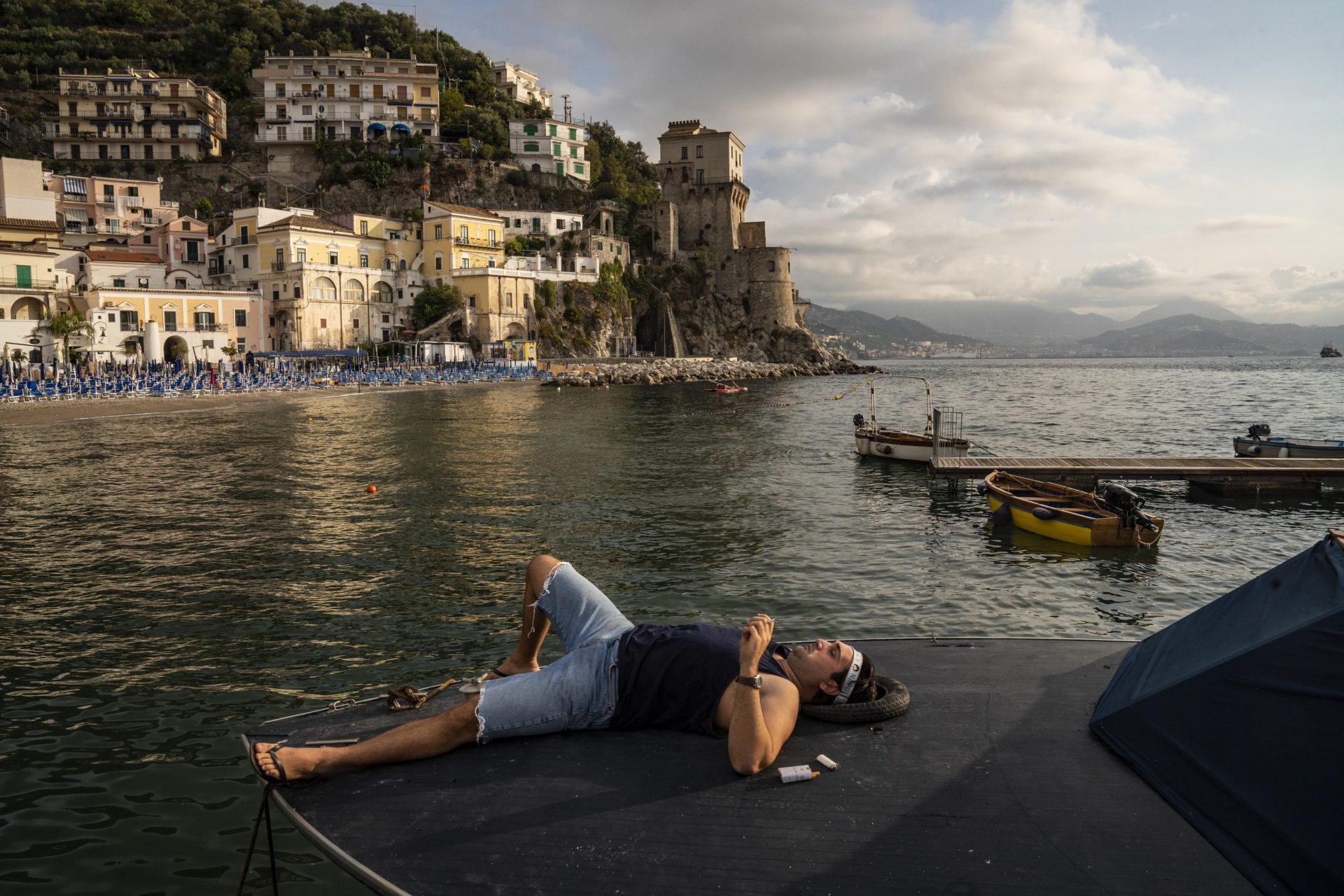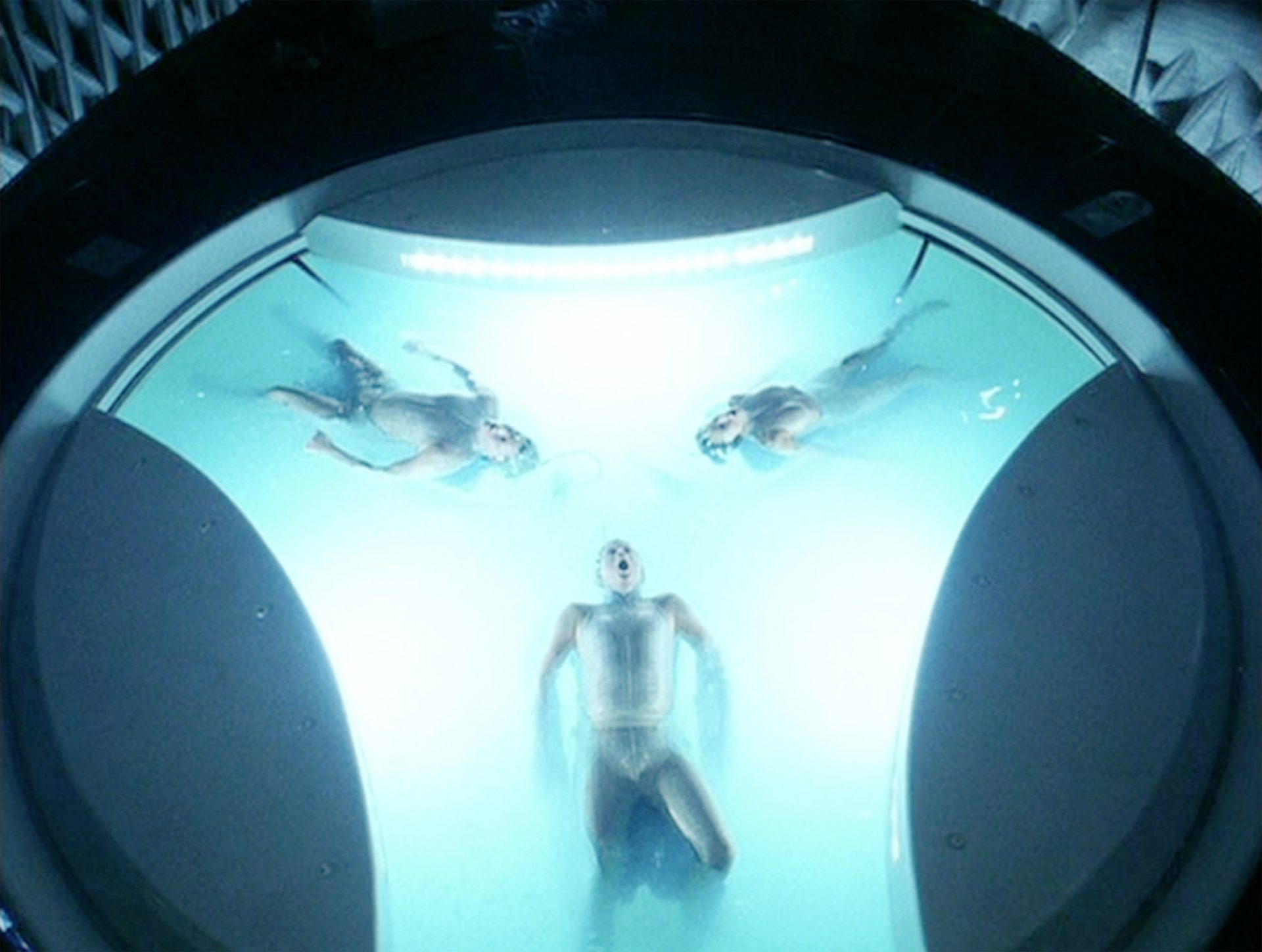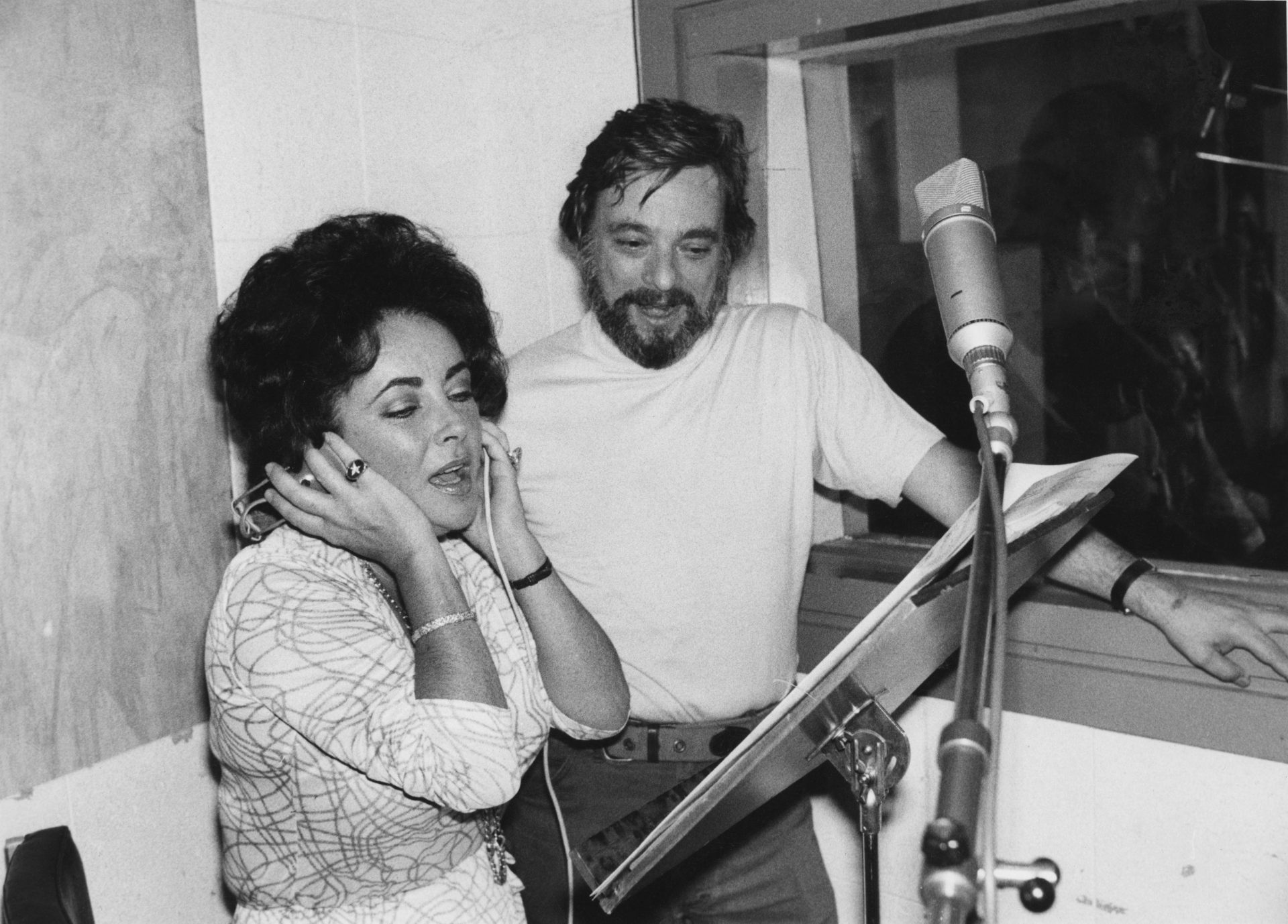When accepting the Oscar for his 2013 masterpiece The Great Beauty, Italian director Paolo Sorrentino dedicated the win to his parents and family, and mentioned his other key influences: “Talking Heads, Federico Fellini and Diego Maradona.”
It should be no surprise, then, that these figures all loom large in his latest and most autobiographical film, The Hand of God (E Stata La Mano di Dio). No surprise, but a huge pleasure for anyone with similar tastes, and the result is one of this brilliant filmmaker’s very best movies and easily one of the best films of the year.
Sorrentino won the Grand Jury prize at Venice in September, where the film premiered, and Filippo Scotti, who plays a thinly veiled version of the teenage Sorrentino in this delicious coming-of-age film, scooped the Marcello Mastroianni prize for best newcomer.
Set in Naples during the 1980s, when Maradona arrived to play for the city’s football team and carried them to unparalleled success, the film bursts with colour and caricature, with emotion and indulgence, with sexual and artistic awakening. It is by turns funny and heartbreaking and it overflows with affection, for Naples, for football, for parents and for memory. If The Great Beauty was a modern response to the shiny emptiness of La Dolce Vita, then it’s only natural to see The Hand of God as Sorrentino’s Amarcord, Fellini’s own 1973 evocation of his Rimini childhood.
The film is filled with thumbnail characters and sketchy incidents, such as the family Sunday lunches where an old woman in a fur coat munches a whole mozzarella cheese and where gorgeous Aunt Patrizia (Luisa Ranieri) sunbathes topless. “You must not call it exaggeration,” says Sorrentino. “This is my reality. It may look grotesque or caricatured to you but it’s not so exotic for Neapolitan people. This is how we are and how we were.”
I talk to Sorrentino in a London hotel as he visits the London Film Festival. He sketches while we talk, a doodled face of some kind that will take shape during the conversation. It seems to me that caricatures are never far from his mind.
I think of his previous films, such as The Family Friend with its hunchbacked, money lender main character, and the faded goth pop star played by Sean Penn in This Must Be The Place, and even the figures clustering around an outlandish Silvio Berlusconi in Loro. Sorrentino’s films are like dreams, haunting and outrageous, and definitely larger than life.
“You can say that for some, but not for The Hand of God. Everything here is very real to me.”
At the heart of the film is the sentimental education of Fabietto Schisa, the teenager through whose innocent eyes we see this world. There are his parents, played by Sorrentino regular Toni Servillo and stage actress Teresa Saponangelo, who seem very much in love, but he, a local banker, hides his serial infidelity while she loves playing cruel pranks on neighbours. There’s a handsome older brother, aspiring actor Marchino (Marlon Joubert), who auditions to be an extra in a Fellini film, and a sister whom we never see because, in a lovely running gag, she’s always locked in the bathroom.
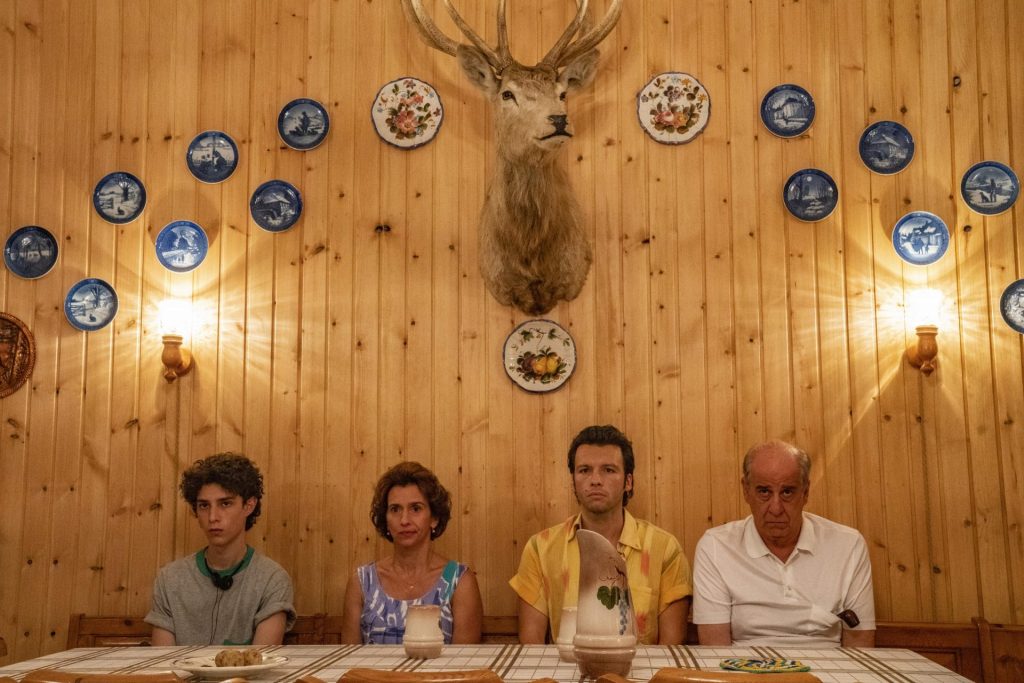
The first half of the film is all baroque joy, a wave of optimism sweeping into Naples as rumours swell about the arrival of Maradona, the world’s greatest footballer. “He’d never leave Barcelona to come to this shithole,” mutters one character among the many who swell the various street scenes.
“I remember that for days everybody was talking about it,” recalls Sorrentino. “Somebody knew someone who swore it was true, but nobody would really believe it and then he appeared, just like that, like a miracle, like a god, and the whole city changed, because there was a new hope. For me, as a young man, it brought a huge feeling of freedom. Again, I am not exaggerating. This is exactly how I remember it.”
Sorrentino is a Napoli fan and, on the day we talk, is buoyant about his team’s brilliant start to the season (as I write, five games later, they are still only two points off top spot). But Maradona is no longer with us.
“He died just a few days after we finished shooting,” Sorrentino says, the director’s hangdog face drooping at the thought. “How did I feel? The same as you would when you lose someone you have stepped alongside through life.
“He accompanied my youth, he was part of my life, every Sunday. But now, in death, his status has grown even more. He is not among us, because he has ascended to being an actual god.”
The Maradona effect is beautifully conveyed in the film. There’s the moment Fabietto’s dad hands him a season ticket to Napoli’s games – “the greatest gift I ever received in my life,” says Sorrentino – a scene even more tantalising and fairytalelike as Charlie getting the golden ticket to the chocolate factory.
And there’s a fantastic sequence when the whole city is watching Maradona score, with his hand, against England during the 1986 World Cup and every apartment erupts in joy.
At times, watching The Hand of God in its best sequences, I tell Sorrentino, is like watching Maradona’s second goal in that England match, a mazy, bewildering dribble, fluid and strong, almost unreal, practically laughable, to the point you hold your breath at the imagination and execution and wonder if you are dreaming.
He beams at the compliment. “This means something very deep to me,” he says. “Because Maradona taught me about art. Watching him play was my art school. We didn’t watch movies at home or go to theatre or read many books so to see Maradona play every Sunday, that was a form of art, as good as any great movie.”
The film, however, is not about Diego Maradona. He features large because Naples features large, and Maradona is everywhere in Naples.
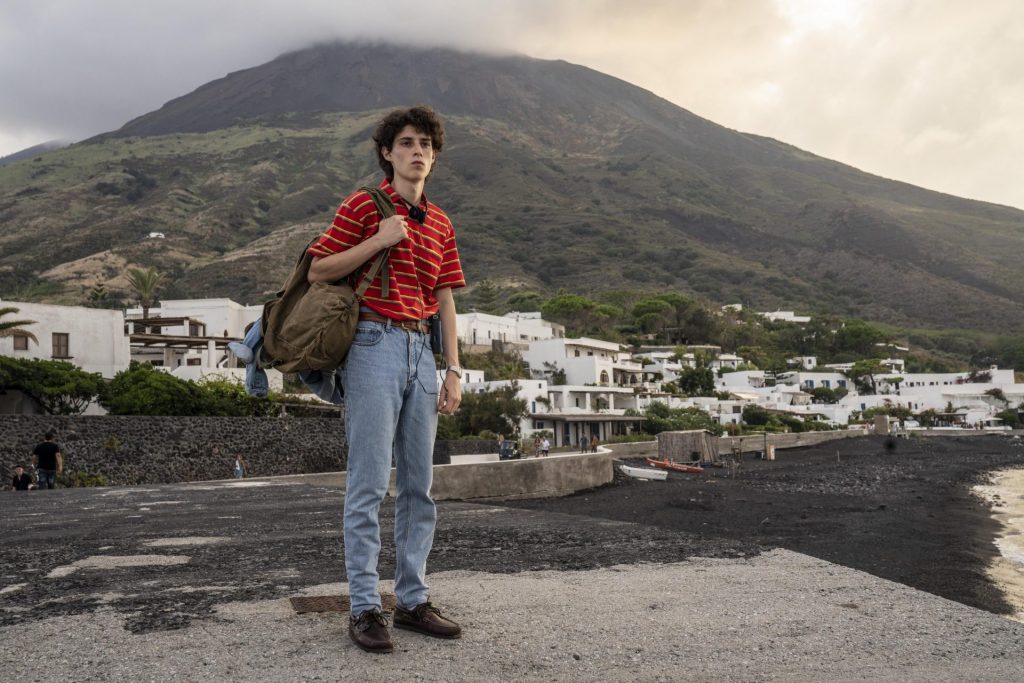
Scotti is from the city. The star, who turns 22 at the end of the month, tells me: “Maradona was in Naples long before I was born, but he never left the city. I feel I also grew up with him.
“You go on every street and there is Jesus Christ and the Madonna and there is also Maradona. He is a sacred figure, alive still in every Neapolitan heart.”
What does the setting of Naples mean for a movie, I wonder. According to Sorrentino, it adds a mystery. “I am not the first person to try to work out the puzzle of Naples,” he says. “It’s a strange and complicated city and I have given up figuring it out so I just make my film there, which is not easy but it’s something I have inside of me.
“Everything I know comes from Naples: the art, the emotion, the culture, my world. I can’t tell you what it is objectively because, to me, it is everything. It’s me.”
For Scotti, making a film in his home city was a revelation.
“Paolo took me to places I would have never been, even if I lived there my whole life,” he tells me. “It is full of secret spots. It’s like a real person. There are many layers and emotions to it, a city underneath the city. Naples can look small but when you are in the little streets, you open a door to a building and there’s a whole hidden world.”
One such location is the Galeria Umberto, a shopping centre and scene of a shoot within the film.
“I used to hang out there when I was a teenager,” says Scotti. “It is an important spot for everyone in Naples, it is near the San Carlo Theatre and the Piazza del Plebiscito and it is by the sea if you want a walk…”
He talks excitedly, like the city, which he says is always in a rush and full of surprises. “It is very tiring, also and there is poetry everywhere. Oh, and it is very sexy.”
And here we come to a sticking point. I love The Hand of God but, particularly at the Venice Film Festival, there was some resistance to it that it would be churlish to ignore. Feminist critics dislike what they feel is Sorrentino’s ‘male gaze’, somewhat predisposed to lingering on the female form, particularly the cleavage. A recent review in Little White Lies magazine asserts that the film is nothing but “the origins story of Paolo Sorrentino’s love of boobs”.
But we are talking about a teenage boy here, seeing the world through his widening eyes.
What else does an Italian kid think about but football and sex?
In this instance, in this film, it feels entirely appropriate, even if modern sensibilities might baulk at the honesty of teenage fantasy.
“Some things have changed since the 1980s,” says Sorrentino. “But I think young boys will always think the same. For me, it was very important to dream of sex and my family was not so original.
“I think everybody had an aunt like Patrizia in their family, and there was always secrets about what happened to certain people, things that were not always talked about among the children. Maybe that is changing now, maybe I would be able to talk about death more now.”
The objectification of Patrizia, which does have some sad consequences, sits alongside the film’s real-life central tragedy, which I don’t want to reveal for fear of spoiling the film for you. But it’s something about which Sorrentino has spoken before, and which is done with great sensitivity and power.
It changes the tone of the film and the character of Fabietto, leading to a more reflective second half that is melancholic and moving.
“But, of course, Naples is also a melancholy place,” says Sorrentino. “You cannot ignore the darkness. There is beauty and there are many bad things that happen and one happened to me and it was the end of my adolescence, so it is a big change for Fabietto in the movie.”
So The Hand of God is a tribute to his family and to the way filmmaking became his way of processing tragedy.
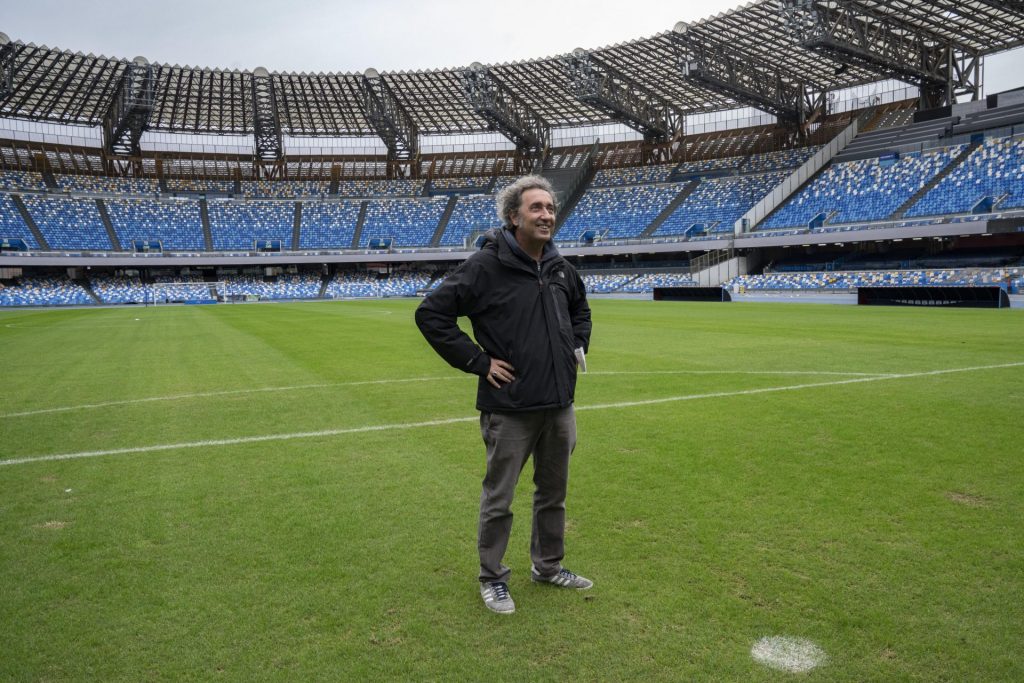
It coincides with going from innocence to experience and it runs parallel to Maradona’s own downfall, when even the gods themselves prove cruel and disappointing and fallible. Going to watch Maradona may well have saved Sorrentino’s life, literally and artistically, and all the emotions that go with remembering that seep into the making of this film.
“I was crying a lot when I wrote it,” he admits.
Scotti says that working with a director who was clearly making something very personal was a pressure at first.
“I had to stop thinking I was actually playing Paolo himself,” he remembers. “I was terrible for the first few days on the set. But then I thought I just have to be Fabietto, this character who is in the script, not that guy behind the camera because they are different people, in different times.
“And Paolo is very ironic so it is hard to know when he is being serious, but when he says ‘action’, he is very serious.”
The loss of innocence and virginity, the highs and lows of teenage emotion, the betrayal of parents and idols and the exuberance of Neopolitan life, all these swirl around The Hand of God. It’s as intoxicating and exhilarating a film as you could wish for.


